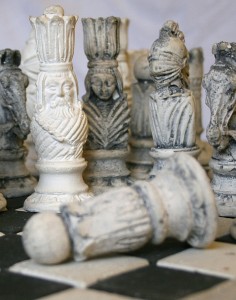 Life is like a game and our happiness depends on how we play. If we play it well, we feel good and are happy, but if we play it poorly, certainly we won’t feel so well.
Life is like a game and our happiness depends on how we play. If we play it well, we feel good and are happy, but if we play it poorly, certainly we won’t feel so well.
By seeing life as if it were a game, we can look for the “tricks” and strategies that allow us to play it better. This is particularly helpful in our relationships with others.
Let’s take a look at a similar, but different, idea from “Ten to Win” from my good friend and mentor, Joel Weldon. In my version of the game, the best possible score is 20 points and the worst is 0. To “pass” we need at least 10 points and anything under 10 is a “failing” grade for everyone involved. In an encounter between two people, each person can contribute up to 10 points where the full 10 points represents 100% effort and 0 points indicates no effort on their behalf.
As is life, our emotional tides are cyclical. Depending on the day and how we feel, our contribution will vary from one day to another. Some days, we will feel terrific and be able to give much, others we won’t feel so good and any effort is will no doubt be difficult.
Would you like to “win” in any relationship with others? Welcome to the club! It isn’t always easy but it is quite simple. We need only achieve a minimum of 10 points between the participants.
Let’s take an example of a student and a teacher, though the example holds true for many situations in life, including, but not limited to: salesperson-client, boss-employee, husband-wife, parent-child, or any other situation where more than one person is involved.
Continuing with our first example, if we have an outstanding student, who continually gives between 80 and 90% of their potential; along with a teacher who does the same, we find the two together will usually pass with excellent grades(between 16 and 18 points total).
Occasionally, both student and teacher may have an outstanding day, on the same day, where both bring 100%. Together, they achieve a “perfect” score of 20. These are those rare times I like to call “Magic Moments” where everything seems to go just as planned.
Using the same example, but on the other end of the spectrum; when neither the student or the teacher bring even 50% of their potential. Under these circumstances, they will surely fail every time.
Though there are many different possible scenarios, there is one thing for certain; the more we bring of ourselves, the more chances we have at “winning.”
Why is this important and what can we do with the information?
To improve our chances of “winning” in the game of life, there are various “tricks” and techniques we can use. Let’s look as toms of the most relevant:
 Learn more about what we do
Learn more about what we do- Increase our contribution in any encounter with others
- Obtain and maintain an excellent attitude toward life to keep a positive perspective on the challenges we encounter our our journey
- Relate with others who tend to give their best effort and learn from their experiences
In any encounter we have, we have two options. We can give our best effort or not. With the first option, we increase our possibility of winning while with the second, we are sure to come up short.
Playing to win implies giving our best effort whenever we relate with others. When we do this with others who do the same, there is no doubt together we can pass the test.
∞ Rob McBride ∞
LL III 49

